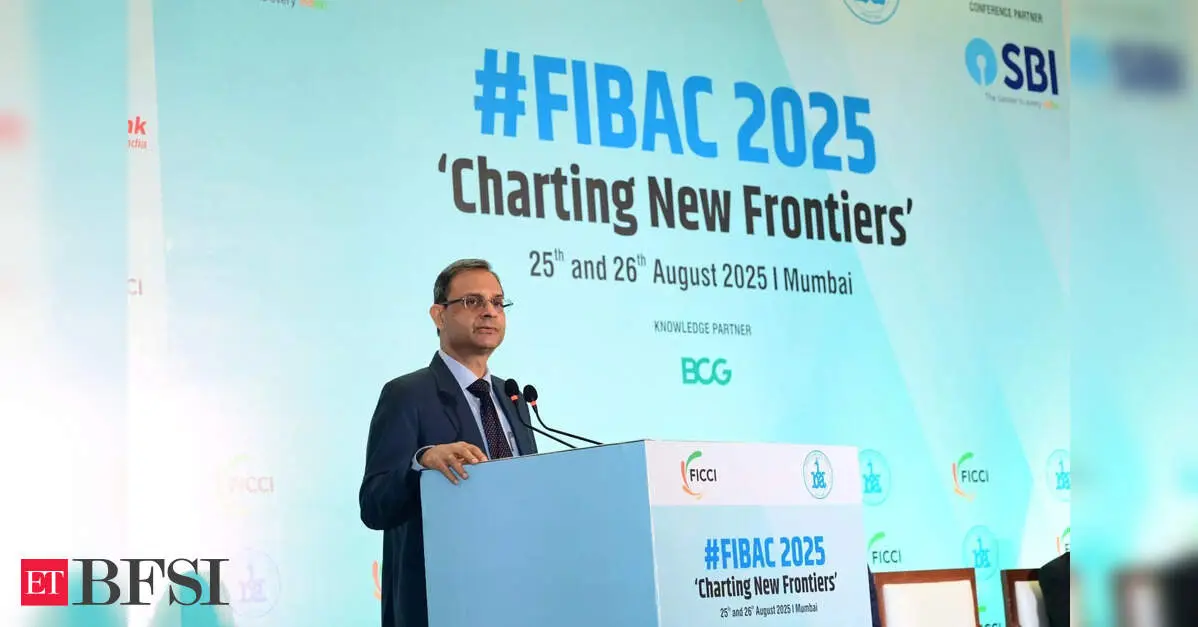Mumbai: The Reserve Bank of India (RBI) is taking proactive steps to safeguard the Indian economy amid various global challenges, as announced by Governor Sanjay Malhotra during the recent FIBAC Conference held in Mumbai. With inflationary pressures and geopolitical tensions becoming increasingly prominent, Malhotra emphasized the need for careful monitoring of these headwinds, which could significantly influence the nation’s growth trajectory. “We have reduced the repo rate by 100 basis points to provide ample liquidity to the banking sector. Going forward, we will continue to do whatever is required to support the growth of the economy, including sectors that may be impacted more significantly if the Trump tariffs or other external shocks materialise,” he stated.
Malhotra highlighted the RBI’s commitment to implementing the Expected Credit Loss (ECL) guidelines aimed at strengthening provisioning practices to ensure financial stability. “The drafts are already issued, and the final framework will be applicable from FY 2027,” he assured. This approach is expected to foster greater resilience within the banking sector, which plays a foundational role in the Indian economy. Therefore, as India prepares for future uncertainties, the focus on proactive measures is crucial.
Strengthening Customer Grievance Redressal
In addition to financial stability, the RBI is placing a significant emphasis on customer grievance redressal. Malhotra stated, “We are reviewing two important frameworks, one of them is the Internal Ombudsman framework.” This initiative aims to resolve customer grievances at the institutional level efficiently. By empowering officers within banks to handle complaints swiftly, Malhotra believes that the grievance redressal mechanism will become more accountable and streamlined.
This initiative is particularly relevant today, as a growing number of consumers are engaging with digital banking services. Consider a small business owner like Anjali, who faced issues with fund transfer delays during a crucial period. Thanks to improved grievance mechanisms, she could receive a prompt resolution, enabling her to manage her operations without interruptions. This kind of customer-centered approach will not only enhance user experiences but also contribute to the long-term trust and cooperation between financial institutions and their clients.
Focus on Corporate Governance
One of the highlights of Malhotra’s address was the importance of corporate governance in the financial sector. He mentioned the need for “rationalising macro policies so that decisions can move from the regulator to the boards of banks and NBFCs.” This decentralized approach would place greater accountability on the banks’ boards, allowing them to deliberate more effectively on strategic issues such as risk management and governance. It indicates a shift towards a more autonomous banking environment where decisions are made closer to the ground level rather than being dictated solely by regulatory frameworks.
This change can be better understood through real-life implications. Imagine a rural bank director, Priya, who understands the local economic landscape. With more authority and ownership over governance decisions, she can tailor strategies that align closely with community needs, thus actively contributing to local economic resilience. This shift not only empowers local banks but also fuels economic growth in smaller communities.
Emphasis on Inclusive Banking
Discussing the flow of credit, Malhotra highlighted a noticeable shift towards retail, agriculture, and micro, small, and medium enterprises (MSMEs). “The size of loans is shifting more towards retail, agriculture and MSME sectors,” he observed. This could indicate a positive trend toward financial inclusion, allowing small farmers and local businesses to gain easier access to necessary lending. With initiatives aimed at bolstering the MSME sector, there is a substantial opportunity to stimulate economic growth, particularly in underbanked regions of India.
The RBI is also focused on enhancing the role of business correspondents (BCs) in deepening financial inclusion, especially in remote areas. By expanding the BC model, which has proven effective in retail banking, more people will have access to financial services, improving both quality and reach. This approach aligns with the global trend of leveraging technology and on-the-ground relationships to create more inclusive financial ecosystems.
Future-Forward Frameworks
Malhotra further urged banks to strengthen their use of Central Know Your Customer (CKYC) frameworks, stating, “It is an important instrument for efficiency, transparency and financial inclusion.” In a world where technology is rapidly reshaping the landscape, streamlined processes are paramount. A simplified onboarding process could ultimately enhance customer experiences, especially for younger demographics that are more tech-savvy.
Concluding his remarks, Malhotra reiterated the RBI’s customer-centric agenda, “Recently, we also issued guidelines on charges, customer service, and grievance redressal, which reflect our customer-first approach.” As the balance of digitalization grows, the importance of maintaining a human touch in banking services cannot be undermined. Training bank staff not only in technical skills but also in customer service capabilities will prove invaluable as the industry evolves.
As the Indian economy navigates through a period of uncertainty, the RBI’s holistic strategies outlined by Governor Sanjay Malhotra could provide the necessary resilience and adaptability needed to prosper. By prioritizing measures that ensure consumer protection, effective governance, and financial inclusion, the RBI is paving the way for a robust economic future.
For more trusted updates on banking and finance, follow Bankerpedia.
Original source: bfsi.economictimes.indiatimes.com










